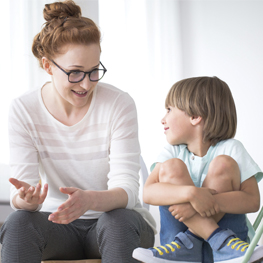
Starting to talk about sexual health topics with your child early on will make it easier to keep talking with your child about sexual health as they grow older.
As a parent, you want to give your child the guidance and knowledge that they need to grow up being responsible, healthy, and happy. Teaching your child about sexual health and sexuality is part of your role as a parent. While you may have concerns about talking with your child about sexual health when they are young, remember, sexual health is not just about sex. Sexual health includes a person’s physical, mental, emotional, and social well-being. It includes things like hygiene, understanding emotions, healthy relationships, and consent.
Starting to talk about sexual health topics with your child early on will make it easier to keep talking with your child about sexual health as they grow older. This also helps them to learn they can trust you and come to you with questions.
For young children, here are some tips for having conversations about sexual health:
Along with facts about the body and how it works, talk about relationships, feelings, and how they affect other people.
When your child asks you a question, do your best to answer it at the time. If you don’t know the answer, suggest that you find out together or tell them you’ll find out and get back to them. Don’t put it off, as they might think that it’s not an okay topic or not important enough to talk about.
Don’t try to cover everything at once - keep the conversation ongoing. Instead of one big talk, have lots of short conversations. And remember, you don’t have to know it all! Be an active learner yourself. Your child will teach you just as much as you teach them.
At teachingsexualhealth.ca, you will find information and resources that will help you get ready for the ongoing talks you’ll have about sexual health with your child from birth to 18 years old. You’ll learn about your child’s development, what your child needs to learn and when they need to know it, along with helpful tools and parent guides to download.
The Teaching Sexual Health team is part of the larger Healthy Children and Families’ team at Alberta Health Services. Find them on Facebook at Teaching Sexual Health or follow on Twitter @TeachSexHealth. For questions or comments, contact This email address is being protected from spambots. You need JavaScript enabled to view it..
Calgary’s Child Magazine © 2024 Calgary’s Child